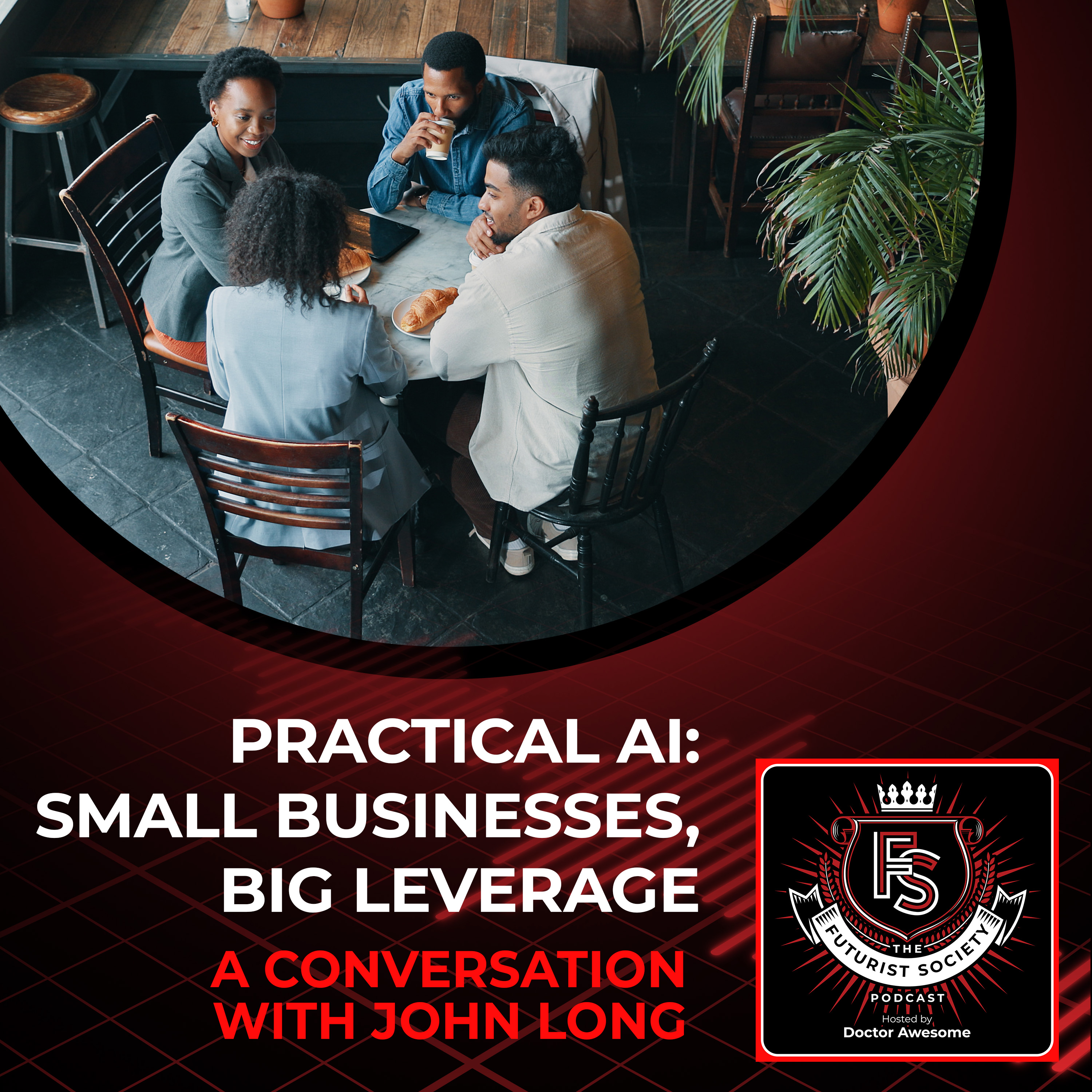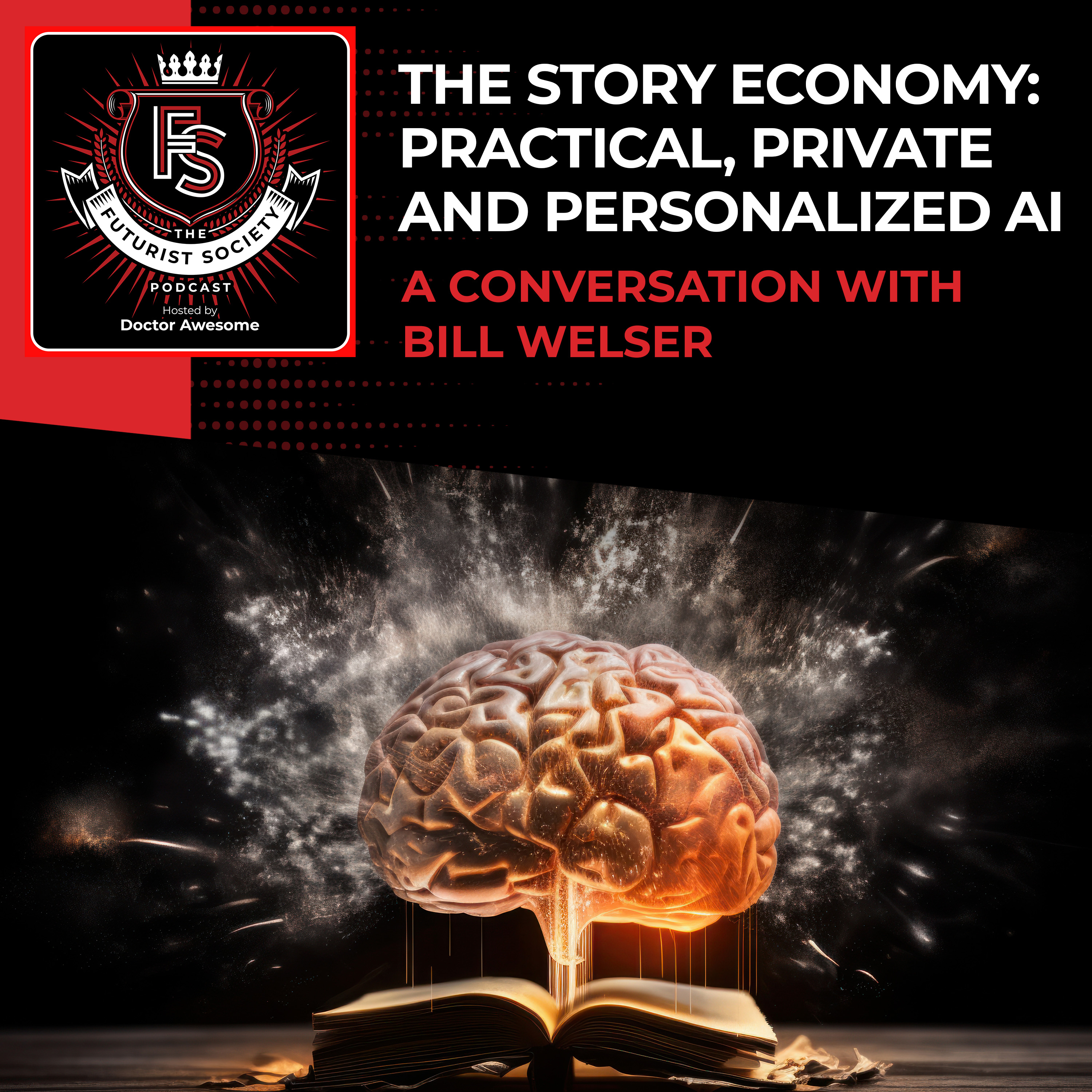The Futurist Society is a podcast that fosters wonder, optimism, and hope about the future. We explore the latest trends, technologies, and ideas shaping our world and the future through in-depth interviews and discussions with leading experts and visionaries. Our mission is to inspire and empower our listeners by exploring the power of science and the limitless potential of humanity. By embracing the future with open minds and hearts, we believe we can create a better tomorrow for ourselves and generations to come.

The Futurist Society Podcast
It’s time to get excited about the future! The Futurist Society podcast explores the cutting edge of technology, science, and culture to bring you an exciting glimpse of what the future may hold. Join host and futurist expert Dr. Awesome as we delve into the most fascinating advancements shaping our world, and the ethical dilemmas that come with them. This thought-provoking show delves into the latest breakthroughs in fields such as AI, biotech, and space exploration, and considers the potential consequences for society. From interviews with leading industry insiders to discussions on the latest futurist literature, "The Futurist Society" is a must-listen for anyone interested in where our world is headed. Many people worry about the future, pointing to the destruction of the planet, the degeneration of society, and other equally bleak scenarios. But is that really what's to come? There are numerous possibilities for our future. We intend to cast a new and hopeful light on what's to come. This podcast provides a forum for people to discuss interesting and awesome topics and events. Each episode invites thought leaders from various fields to share their perspectives on what's happening now and what's to come. Listen to inspiring roundtable discussions about ideas, concepts, and innovations. Prepare to be blown away as guests discuss exciting projects, studies, and developments to anticipate. The world is vast, and so is the realm of possibility. The show is here to remind you that the future is yet to happen, and there is so much we can do to improve it. Science can influence both good and evil. It's a tool, and just like everything else, the power is in the hands of the people. Your host, Doctor Awesome, is a man who is excited about the future. As a practicing surgeon and professor in the Boston, Massachusetts area, he is constantly exposed to new information. His optimism is based on ongoing scientific and technological advancements. Doctor Awesome combines his hopefulness with current innovations that could help make a better tomorrow for future generations. Doctor Awesome and his guests will inspire you with a wealth of new information, fascinating breakthroughs, and impressive developments that might be news to you. Experts from various backgrounds share compelling data points yet to be explored. You may be surprised by topics that interest you. Whether it's about medicine, technology, or agriculture, you're sure to take away interesting and encouraging knowledge.Nobody knows what will happen until it occurs. When better things are possible, why settle for gloomy predictions and watch helplessly as they come true? Reimagine a better future by joining a community of futurists who strive for a remarkable world. Explore the options and open your eyes to an even greater life. Take part in this growing network and contribute to making the world a more positive place. Visit thefuturistsociety.net and subscribe to the show so you don't miss a drop of hopeful futurism.
New to The Futurist Society Podcast?
Here are some great episodes to start with. Or, check out episodes by topic.
Recent Episodes
Sept. 15, 2025
How To Fix Fertility: A New Personalized Playbook
Personalized behavior change, HRV, and data-driven coaching to fix fertility for couples seeking natural conception.
Sept. 1, 2025
Small Businesses, Big Leverage: A Better Future With Practical AI
How small businesses use AI agents to answer calls, book jobs, and win time with measurable ROI and simple steps.
Aug. 11, 2025
The Story Economy: Practical, Private And Personalized AI
How the story economy powers practical, private, personalized AI for better decisions with your data.
July 28, 2025
Building A Better Future: Climate Tech That's Working Today
Josh Dorfman reveals practical climate tech solutions transforming communities through electric school buses, urban trees, and innovative building materials.
July 14, 2025
How A Surprisingly Simple Patch Could Revolutionize Respiratory Care
Sharon Samjitsingh discusses how a discreet wearable patch predicts respiratory attacks months ahead by analyzing deep organ sounds, transforming asthma and COPD care.
June 23, 2025
Future Perfect: A Listener's Vision Of A Better Tomorrow
A wide-ranging and optimistic conversation with Futurist Society Podcast listener Sage about technological progress, space colonization, transhumanism, and democratized innovation.
About the Host

Imran Ahson
Surgeon, Futurist, Educator, Founder
Imran is a man who is excited about the future. As a practicing surgeon and professor in Boston, Massachusetts, he is constantly exposed to new information.
His optimism is based on ongoing scientific and technological advancements. Imran combines his hopefulness with current innovations that could help make a better tomorrow for future generations.









